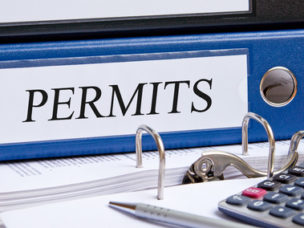Stay in the know
Subscribe to the Real Estate Blog and we’ll send you an email each time something new is posted.
Subscribe to the Real Estate Blog and we’ll send you an email each time something new is posted.
Blogs
Real Estate Blog
Recorded Deed with Defective Acknowledgement Fails to Provide Constructive Notice to Third Parties
In a case of first impression, the Massachusetts Appeals Court recently held that a real property grantee could not be charged with constructive knowledge of a prior recorded deed which lacked proper notarization. The Appeals Court decision in Allen v. Allen, 13-P-605 (Sept. 16, 2014), serves as a stark reminder that statutory formalities are strictly interpreted in the context of real estate conveyances.
The Allen case involved a dispute between brother (Harold) and sister (Deborah) over ownership of the family’s Lexington, Massachusetts home. In April 2001, the siblings’ mother (Ethel) began moving out of the Lexington property to live with another of her children in New Hampshire. On July 23, 2001, Ethel executed a deed (the July deed) conveying the Lexington property to Harold and Ethel as “joint tenants with a right of survivorship.” A family attorney prepared and notarized the July deed. Counsel signed a certificate of acknowledgement stating that Ethel had appeared before him and executed the July deed on July 23, 2001. The July deed was recorded on August 10, 2001.

On November 30, 2001, Ethel created a trust and executed another deed (the November deed) conveying the Lexington property to herself and to Deborah as co-trustees. The November deed was recorded on February 8, 2002. Neither Deborah nor her counsel discovered the July deed. Ethel died on December 20, 2009.
In January 2010, Deborah brought suit in Land Court disputing Harold’s claim to the Lexington property. Deborah denied having any prior knowledge of the July deed. Despite conflicting testimony, the Court found that Ethel was not present in Massachusetts on the day she purportedly executed the July deed (she was living in New Hampshire). Accordingly, contrary to counsel’s acknowledgment, Ethel had not executed the July deed in the presence of counsel, thereby invalidating the notarization. The Court held that because the July deed was defective, Deborah could not be charged with constructive notice of the conveyance to Harold and the July deed was unenforceable against her.
The Appeals Court upheld the decision. The Court reviewed the Massachusetts recording statute and noted that “in order to charge the world with notice of the conveyance, then it is necessary that the deed be acknowledged and that a certificate reciting this fact be attached to the deed.” In this case, the July deed was never properly acknowledged, and therefore, the deed was not entitled to be recorded in the first place. The Court held that “an improvidently recorded deed cannot give constructive notice of the conveyance. … [T]o determine otherwise would reward a grantee who records a deed that falsely purports to be acknowledged.” Deborah retained her interest in the Lexington property.
The Appeals Court’s decision is consistent with long-standing real property tenets mandating strict compliance with recording requirements. As always, the best course of action is to comply with these statutory requirements and to avoid shortcuts. Compliance in this regard will avoid headaches and put you in the best possible position to defend your property rights down the road if necessary.



